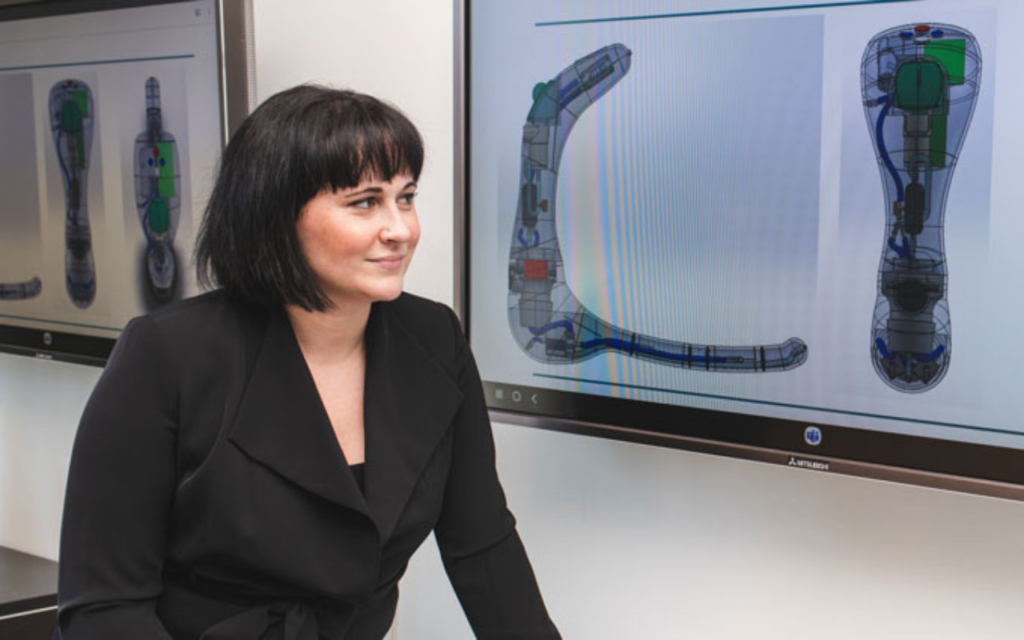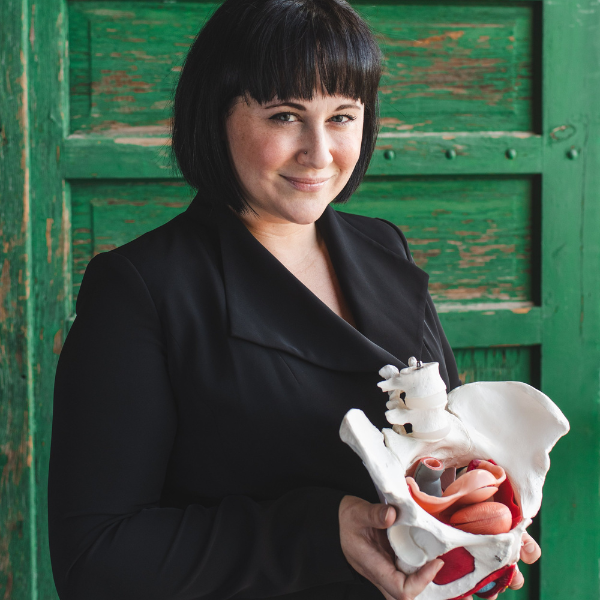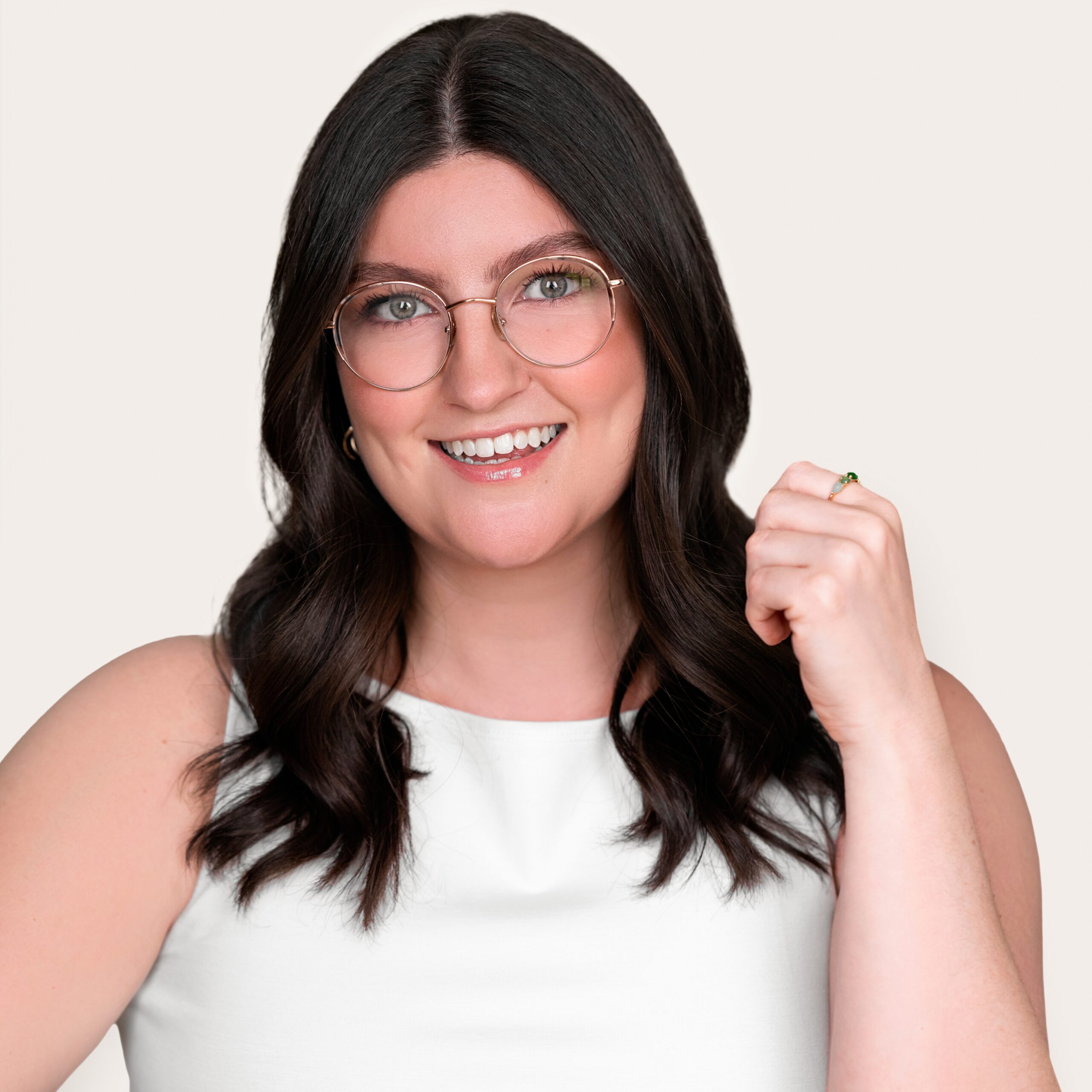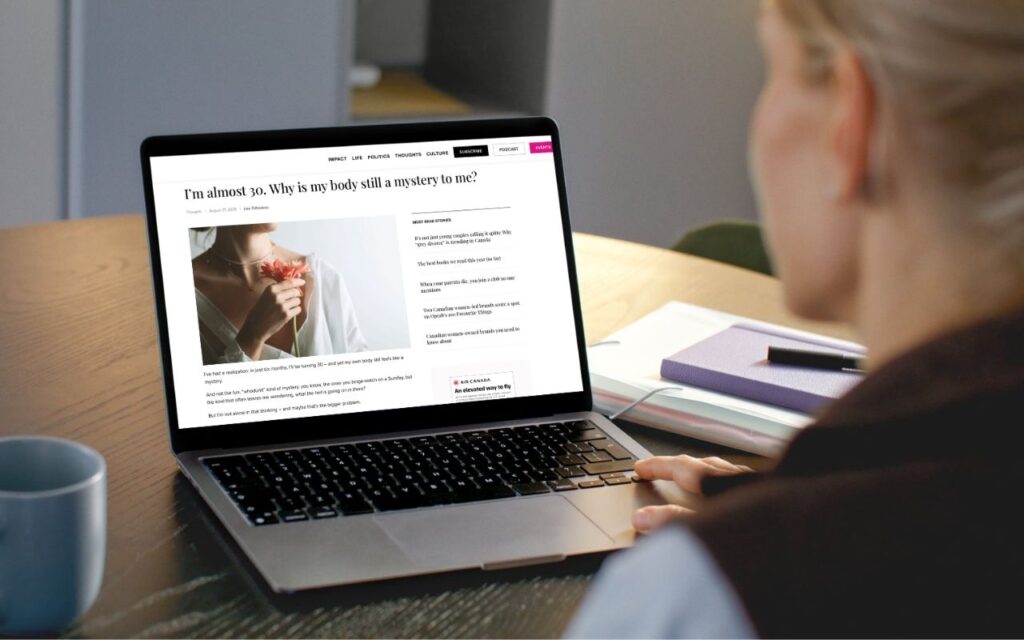
In 2019, Rachel Bartholomew’s world changed.
An open abdominal hysterectomy and cervical cancer diagnosis at just 28 years old forced her into a whirlwind of treatments that left her grappling with a new reality, and facing an onslaught of pelvic health challenges.
Having previously undergone surgery for endometriosis, and attended pelvic floor therapy sessions, Bartholomew wasn’t shocked when she was recommended a vaginal dilator following her cancer journey – a common practice following cervical cancer treatment to reduce the risk of vaginal stenosis, or the shortening and narrowing of the vagina from scar tissue.
But when she was handed the glass tube dilator that she would need to use almost daily, she couldn’t stay quiet any longer.
“I remember thinking, ‘What the hell is this?’” she said. “I got on Google and quickly discovered that what we know to be vaginal dilators haven’t really been updated since they were invented in the 1930s.”
Like so many women struggling with life-altering pelvic health challenges, she was left with more questions than answers — and a glaring lack of resources.
For Bartholomew, “What now?” wasn’t just a question; it became a mission.

That mission eventually grew into Hyivy Health, a company Bartholomew founded in 2020 that is now working to change the landscape of pelvic health and revolutionize vaginal dilators.
A new era for pelvic health
Drawing on her background in entrepreneurship and her lived experience as a patient, Bartholomew began speaking with other women – as well as doctors – about the archaic dilators to better understand the gap.
“It was so clearly a pain point for women,” she said, explaining that the old dilators can be painful and more of a burden than a solution.
Traditional dilators are rigid and give users little control over the sizing, often increasing by half-inch increments to stretch the vaginal tissue with the goal of improving the flexibility of the vagina and strengthening pelvic muscles. But women may find one size comfortable and the next level up unbearable, with no middle-ground option.
When Bartholomew spoke to doctors about dilators and pelvic health conditions, however, they seemed resigned to – if they were even aware of – the challenges women were facing.
“A lot of the doctors would blatantly say, ‘I don’t know how to solve these problems,’” said Bartholomew. “It wasn’t surprising to me, but it became apparent doctors aren’t being taught about a lot of women’s health issues because it’s just not being studied.
Bartholomew admits she saw that gap in information first-hand when she began brainstorming how to re-invent the dilators.
“It took us a year and a half of foundational, fundamental science studies that we had to do on our own just to make a product that can potentially solve a problem,” she said.
“We don’t know what the vagina is shaped like, we don’t know what the length of it is, we don’t know what the circumference is… God forbid, then you layer in chronic conditions like endometriosis, and you can quickly see that we don’t know anything.”
A journey of hope and healing
After a copious amount of research and assembling a kick-ass team of doctors, researchers and engineers, the Floora device was born.
Instead of using static dilator sizes, the Floora device is an ergonomic wand that uses air inflation – think balloons – to stretch the vaginal tissue at a controlled, comfortable rate. The wand connects to a secure app that collects real-time data through pressure and temperature sensors, allowing women and their healthcare providers to monitor progress and adapt treatment plans.
“We wanted to make sure that the doctor was at the helm of these conversations because it is so important to have them not just go, ‘Here’s your device; it’s all on you now,’” said Bartholomew.
The wand also integrates heat and cold therapy to reduce pain and inflammation, providing comfort to the user.
The team is still in the trial phase to ensure the product checks as many boxes as possible, but Bartholomew is encouraged by the reaction so far.
In late 2024, the team raised an additional $2 million in seed funding to advance their clinical trials. By partnering with the Women’s College Hospital, McMaster University, and Grand River Cancer Centre, they are putting Floora in the hands of those who need it.
And so far, the data sets from the Hyivy system are showing promising and exciting results not just for the treatment of pelvic pain, but also for potential diagnostic purposes across the more than 51 conditions associated with pelvic pain that affect women at every stage of life.
“We’re always looking for patients who are dealing with chronic pelvic pain because we want your experience to impact the product that we make,” she said. “We’ve spoken to hundreds of people so far about their health journey; it’s quite crazy.”
As for Bartholomew’s health journey, she said pouring her passion and energy into Hyivy – as well as her other ventures such as Femtech Canada and Femtech Across Borders – has been a welcome distraction.
“Through this cancer recovery journey, I haven’t felt ready to deal with the medical trauma that I dealt with, the decisions that I felt were made for me, and the loss of fertility,” she explained. “But this project has been healing my soul. We’re bringing together women who fundamentally understand these experiences, and that makes it all worthwhile.”








